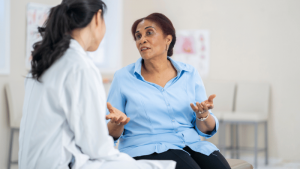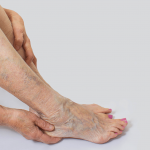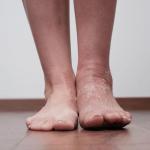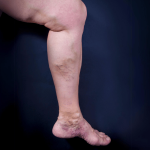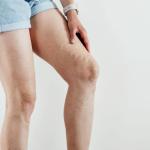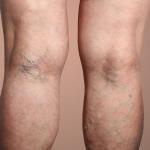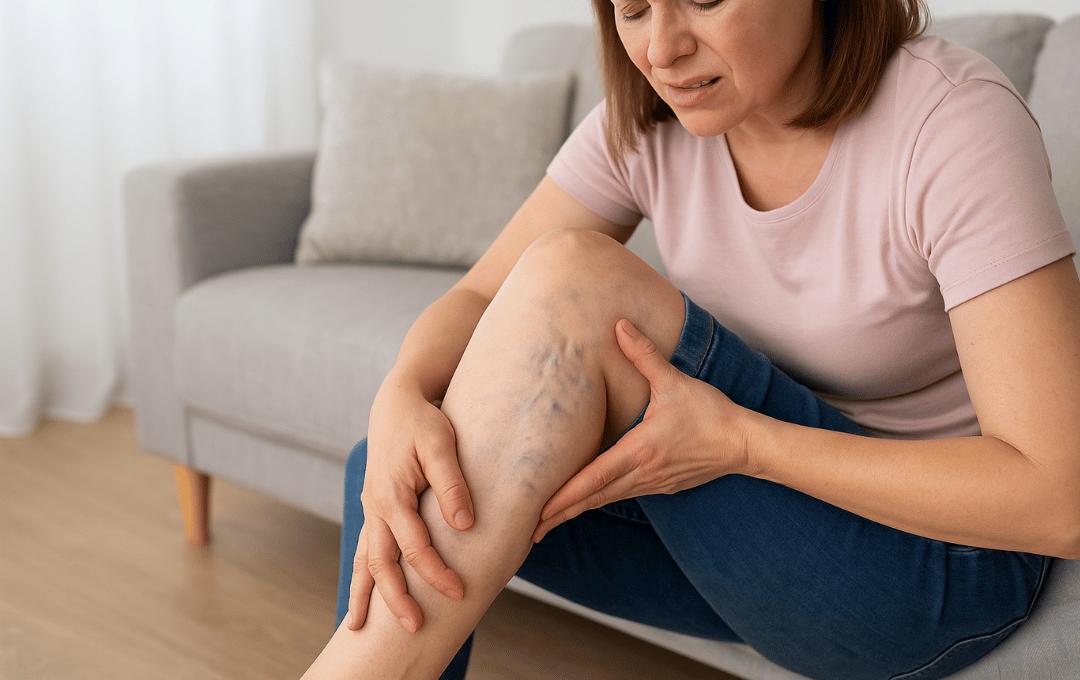
A common question that many people with varicose veins wonder is, “Do varicose veins hurt?”
Not all varicose veins are painful, but many people report discomforting symptoms. Varicose veins resulting from underlying circulatory problems, such as (CVI) can cause pain and more serious complications such as skin discoloration, venous ulcers, or blood clots. Understanding what causes varicose veins to hurt is the first step toward finding lasting relief.
Should Varicose Veins Be Painful?
Some people have bulging varicose veins, but report no discomfort. However, varicose veins that are painful are often a sign of chronic venous insufficiency (CVI), or vein disease.
Since CVI causes the venous valves to fail to close correctly, the blood flows backward and accumulates in the legs. Over time, this leads to swelling, tissue damage, and increased pressure that can make varicose veins hurt even more.
Where Does the Pain Usually Occur in Varicose Veins?
Varicose veins are most likely to cause leg pain, specifically in the calves, thighs, or behind the knees. Discomfort may also appear near any visible, twisted, or bulging veins, particularly after prolonged periods of standing or sitting. Some people notice tenderness when touching the area or feel tightness around the lower legs and ankles.
What Does Varicose Vein Pain Feel Like?
Varicose vein pain can vary from person to person, but it often includes:
- A dull throbbing or aching in the legs
- Burning or itching around the affected veins
- Sharp or cramping pain, particularly at night
- Increased discomfort in hot weather
- Amplified pain during hormonal changes
Varicose veins can bring other symptoms that may not be as painful. This includes tired or heavy legs, leg swelling, and dry skin. The legs may also feel restless in the evening.
These symptoms of varicose vein leg pain often worsen throughout the day, especially if you spend hours sitting or standing. If you’re unsure whether the symptoms you’re experiencing are tied to vein disease, our quiz can help you determine whether you should consult a vein specialist for further help.
When Should You Worry About Varicose Vein Pain?
It’s essential to pay attention to your pain symptoms, especially if they persist, worsen, or interfere with your daily life.
You should seek medical evaluation if your painful varicose veins accompany any of the following:
- Swelling
- Aching or throbbing sensations
- Heavy or tired legs
- Skin discoloration, hardening, or thickening
- Open sores that don’t heal
- Sudden increase in pain, redness, or warmth, which may signal inflammation or a blood clot
These could be signs of a more advanced vein condition that requires prompt medical care.
What to Do if Your Varicose Veins Hurt
If you are living with painful varicose veins that are affecting your daily life, it’s time to consult a vein specialist. Persistent pain often indicates compromised circulation, and ignoring it may allow the condition to progress.
A specialist can perform a quick, non-invasive ultrasound exam to identify the source of the pain and determine whether vein disease is present. The doctors at USA Vein Clinics create personalized treatment plans to help relieve symptoms in your legs and improve your quality of life.
USA Vein Clinics’ Treatments That Help With Varicose Vein Pain
After the vein specialist reviews your symptoms and medical history, they will recommend the best treatment for your condition. USA Vein Clinics offers minimally invasive treatments that are often performed in office-based settings, allowing you to return to your daily routine on the same day as your procedure.
USA Vein Clinics offers the following treatment options:
- VenaSeal™
- ClariVein®
- Endovenous laser vein treatment (ELVT)
- Varithena® vein treatment
- Ultrasound-guided sclerotherapy
- Radiofrequency ablation (RFA)
USA Vein Clinics offers these advanced procedures that are performed in-office, require little to no downtime, and are typically covered by insurance. Minimally invasive treatments are virtually painless for most patients, come with fewer side effects than surgery, and require little to no downtime. Your vein specialist will recommend the best treatment option based on your symptoms and health history.
Don’t Ignore Pain From Varicose Veins
If you are dealing with varicose veins that hurt, it’s always recommended to treat them sooner rather than later. Ignoring painful symptoms can allow for conditions like chronic venous insufficiency (CVI) to worsen, leading to more serious issues like ulcers, infections, or blood clots.
Scheduling a consultation with USA Vein Clinics means you’ll work with compassionate vein specialists who help you find lasting relief through effective, non-surgical treatments. With nationwide locations and insurance accepted for most medically necessary procedures, care is convenient and accessible wherever you are.
FAQs About Varicose Vein Pain
Why does varicose vein pain get worse in the evening?
Varicose vein pain often worsens in the evening because the “daily grind” may add pressure to the veins. Prolonged sitting or standing can lead to swelling, which may contribute to other symptoms, such as aching or heaviness in the legs after a long day.
Does weather affect varicose vein pain?
The weather can affect varicose vein pain. Heat causes veins to dilate, leading to more swelling, heaviness, and cramping. Colder temperatures may temporarily improve symptoms; however, increased inactivity during the winter months can contribute to further vein damage.
What happens if varicose vein pain is left untreated?
Untreated varicose vein pain can lead to worsening symptoms. They can also lead to more serious complications, in which open sores on the leg fail to heal and dangerous blood clots form.

